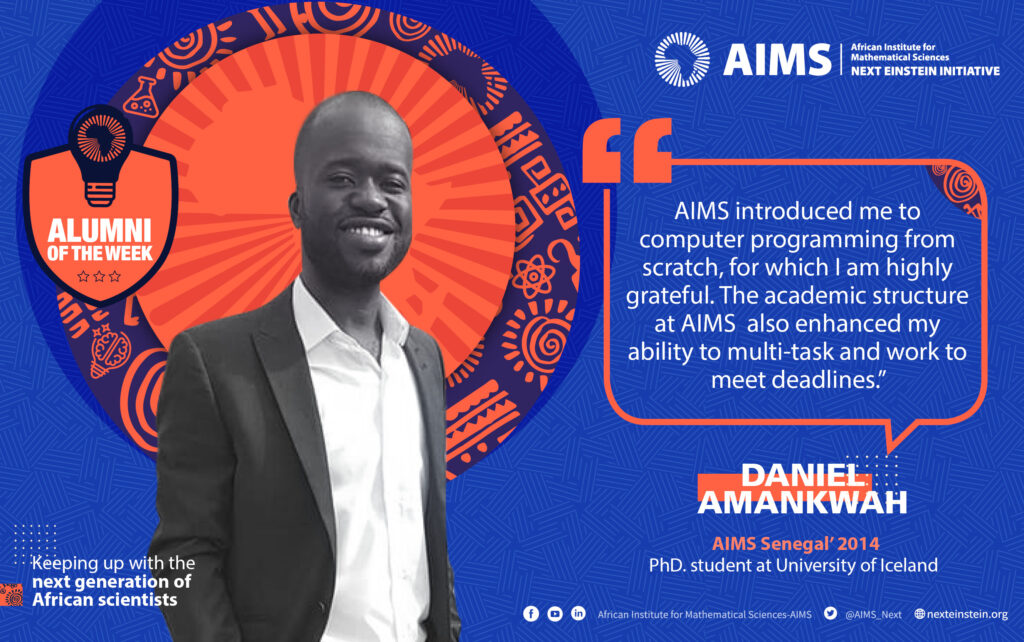In this week’s edition of #AlumoftheWeek, Daniel Amankwah, a PhD student at the University of Iceland and AIMS Senegal 2014 alumnus, walks us through his post-AIMS journey.
Q: Tell us about your academic journey before AIMS.
Daniel: I earned a Bachelor’s degree in Mathematics at the University of Ghana (UG), subsequently serving as a teaching assistant at the university’s Mathematics Department. These undergraduate and postgraduate experiences occurred over the space of five years, until 2013.
Q: How would you describe your time at AIMS?
Daniel: It was exciting to be part of the third cohort at AIMS Senegal, considering I was one of two Ghanaians enrolled at the Centre. The popular quote then was “cinquante est égal à un” (fifty equals one). The highly multicultural nature of the group comprising students from 20 different African countries was fascinating. The high-quality lectures from top Professors were the best I could get. I got to create networks that are beneficial to me to this date.
Q: Tell us about the impact AIMS has had on you.
Daniel: AIMS introduced me to computer programming from scratch, for which I am highly grateful. The academic structure at AIMS enhanced my ability to multitask and work to meet deadlines. The thesis period was the most crucial part of my study period. It seemed surreal to have worked under the supervision of the renowned Professor Louis Kauffman, but AIMS made this possible.
Q: What would you describe as your success story after AIMS?
Daniel: There have been countless success stories for me after AIMS. I have had the opportunity to study and work in many countries, including Germany, France, and Iceland. I have also had the chance to give back to my country by working as a lecturer at the University of Ghana for two years.
Q: Which of the SDGs is most important/relevant to you? How do you plan on addressing it in your work?
Daniel: I am more inclined to “Quality Education”. However, I consider the others as equally important. Children from a large part of our continent are deprived of basic education, which is an issue. Making quality education more accessible to as many people as possible will produce problem solvers and innovators. As an academic, I am committed to giving back knowledge to young people who rely on mentorship.
Q: What is your message to current AIMS students and young people across the continent?
Daniel: It is very tempting for students to decide to pass through course by course without a proper grasp of concepts considering the fast nature of the program. My advice to students would be to make a conscious effort to learn a tangible skill in the span of the program. After all, in the end, it is not the certificate that sustains you; it is the acquired skills.

